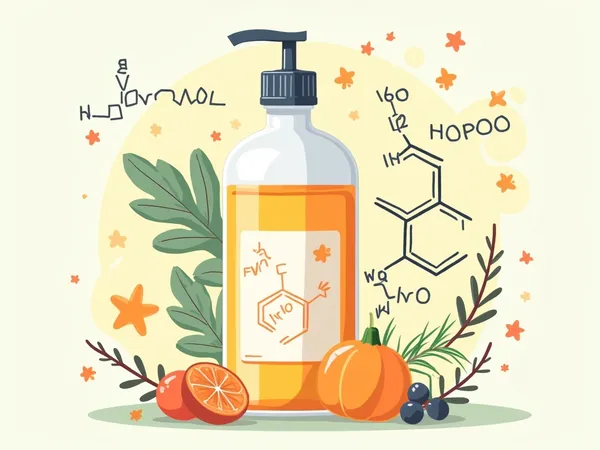
Ready to Start Your Wellness Journey?
Become a Herbalife Preferred Member and enjoy exclusive discounts of up to 25% on all products.
BECOME A PREFERRED MEMBERFlavonols in Food: Understanding Antioxidant Power
Disclaimer: This article is for informational purposes only and should not be considered medical advice. Always consult a healthcare professional or a registered dietitian before making significant changes to your diet or starting any supplementation.
Introduction
Flavonols are a subclass of flavonoids, a diverse family of plant-based compounds known for antioxidant, anti-inflammatory, and vascular-supporting properties. Found abundantly in fruits, vegetables, tea, and cocoa, flavonols contribute to the colors of plant foods and support several aspects of human health. While not classified as essential nutrients, flavonols have been associated with positive effects on oxidative balance, inflammation, and vascular function.
In this article, we explore the roles of flavonols in the human body, the potential consequences of low intake, dietary sources, evidence-based benefits, and practical recommendations for incorporating flavonol-rich foods into a balanced diet.
Role in the Body
Specific Functions
Flavonols contribute to health through various mechanisms:
• Antioxidant activity: They help neutralize free radicals and reduce oxidative stress, protecting cells from damage.
• Inflammatory modulation: Flavonols can inhibit pro-inflammatory enzymes and signaling pathways, supporting a balanced inflammatory response.
• Vascular support: By enhancing endothelial function and promoting vasodilation, flavonols may help maintain healthy blood flow.
• Neuroprotective potential: Experimental studies indicate that certain flavonols cross the blood–brain barrier, reduce neuroinflammation, and influence signaling pathways related to neuronal health.
• Cell signaling and gene expression: Flavonols can affect pathways involved in cell growth, apoptosis, and metabolism.
Effects of Low Intake
Although there is no recognized deficiency syndrome for flavonols, low dietary intake may be linked to:
• Reduced antioxidant defenses and greater oxidative stress.
• Impaired endothelial function, which could affect vascular tone.
• Persistent low-grade inflammation.
• Associations in observational studies between lower flavonol intake and markers of cognitive decline.
Dietary Sources
Best Food Sources
To ensure a variety of flavonols, include:
• Onions (especially red and yellow) – among the richest sources of quercetin.
• Apples (with skin) – provide quercetin and related compounds.
• Berries (blueberries, cranberries, blackberries) – contain a mix of quercetin, myricetin, and kaempferol.
• Leafy greens (kale, spinach, lettuce) – supply kaempferol and quercetin.
• Tea (green and black) – offers various flavonols, including kaempferol and quercetin.
• Red grapes and red wine – sources of quercetin and other polyphenols.
• Cocoa and dark chocolate – contain flavonol glycosides such as quercetin and kaempferol in addition to flavanols.
Supplementation
Most people obtain flavonols through diet, but supplementation may be considered when dietary intake is limited. Situations include:
• Restricted access to fresh produce.
• Older adults or those with malabsorption concerns.
• Individuals under high oxidative stress (e.g., athletes, smokers).
If using supplements, choose standardized products (e.g., quercetin dihydrate) and follow product-specific dosing; consult a healthcare professional before beginning supplementation.
Health Benefits
Evidence from clinical and observational studies suggests that flavonol intake may contribute to:
• Cardiovascular support: Diets rich in flavonols have been linked to improved endothelial function and modest reductions in blood pressure.
• Cellular health and cancer research: Laboratory studies demonstrate that flavonols can inhibit tumor cell proliferation and promote apoptosis; epidemiological data show associations between higher flavonol intake and lower cancer incidence.
• Glucose regulation: Some human trials report improvements in insulin sensitivity and glycemic control with flavonol supplementation.
• Cognitive health: Population studies associate higher flavonol consumption with reduced rates of age-related cognitive decline.
• Immune modulation: Flavonols may help maintain balanced inflammatory responses and support overall immune function.
Daily Recommendations
There is no official dietary reference intake for flavonols. Research and dietary surveys indicate that a varied plant-based diet can provide a beneficial range of flavonols. General guidance includes:
• Aim for a daily intake of flavonol-rich foods, such as fruits, vegetables, tea, and legumes.
• Include a variety of sources to cover different flavonol types.
• Consider individual needs: older adults or highly active individuals may prioritize higher intake through diet or supplementation under professional supervision.
Tips for Incorporation
Strategies to boost flavonol intake:
• Enjoy oatmeal topped with apple slices (with skin), blueberries, and a cup of green or black tea.
• Blend a smoothie with spinach or kale, mixed berries, and unsweetened plant milk.
• Add onions to roasts, stir-fries, salads, and soups.
• Snack on raw vegetables with guacamole or salsa.
• Choose dark chocolate (≥70% cocoa) for an antioxidant-rich treat.
• Use fresh or dried herbs (dill, parsley, chives) to flavor dishes.
• Replace sugary beverages with iced green tea flavored with lemon and mint.
• Incorporate legumes (black beans, lentils) with leafy greens in salads for a meatless meal.
Conclusion and Call to Action
Flavonols are bioactive plant compounds that support antioxidant defenses, inflammation balance, and vascular and cognitive health. By integrating a variety of flavonol-rich foods into your daily meals—such as onions, berries, leafy greens, tea, and dark chocolate—you can enhance your intake without major dietary changes. Assess your current eating patterns and make small, sustainable adjustments to enjoy the potential benefits of these compounds as part of a balanced diet.
Ready to Start Your Wellness Journey?
Become a Herbalife Preferred Member and enjoy exclusive discounts of up to 25% on all products.
BECOME A PREFERRED MEMBER